2020 was one of the most significant years in modern cinematic history. Not because of an overwhelming wealth of great films, but because of the insane upheaval of how films were marketed, released and ultimately seen by audiences worldwide.
Streaming services became the forefront of film film releases, and while Australian cinemas have opened fully, not enough decently interesting movies were released to garner the kind of interest audiences had in the last five years. We got whatever was left, or whatever could be put out cheaply and efficiently. Most of the time these were generic action-thrillers (Unhinged) or sub-par dramas (Love Sarah), but sometimes it meant a few local films could thrive in an emptier marketplace. We eventually came to December and got a healthy mix of mainstream films, local thrillers, excellent offerings from streaming services, and the usual awards contenders.
I saw a fair few of them, but over the long holiday break, I couldn’t find myself writing pages and pages on just any one of these movies. So why not save time and take the easy way out with a round-up review!
Soul
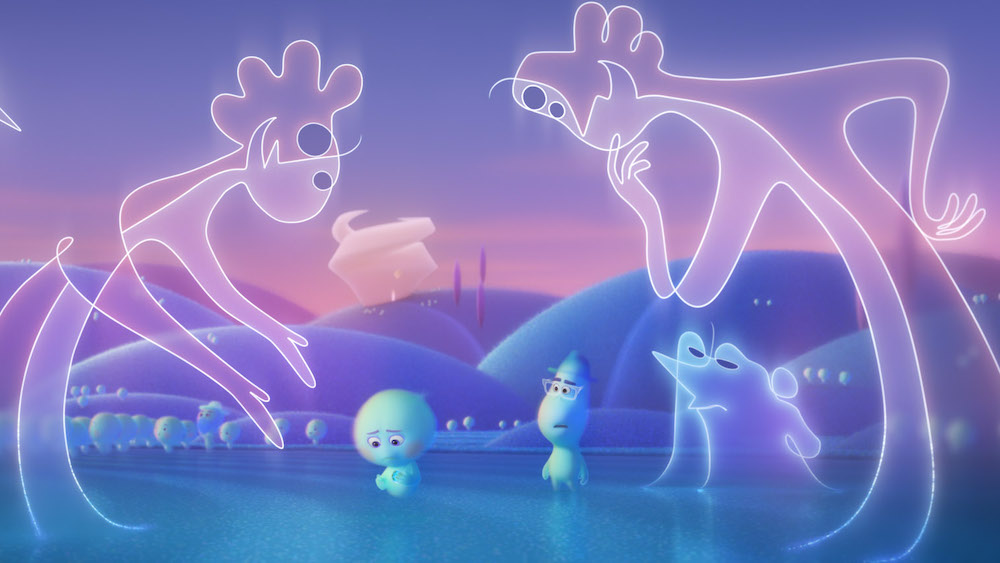
Help keep The Curb independent by joining our Patreon.
Released on Christmas Day on Disney+, Soul is the latest offering from Pixar, telling the story of Joe (Jamie Foxx), a struggling jazz pianist who gets a chance for a big break but has his life upended by a literal out-of-body experience. His soul is trapped in a realm beyond our reality or imagination, and Joe must find a way to get back to all that he knows with the help of mischievous and stubborn lost soul 22 (Tina Fey).
From the premise, Soul could sound like a spiritual sequel to 2015’s Inside Out, and they’re both directed by Pete Docter, with Soul being co-directed by One Night in Miami writer Kemp Powers. As it is in Inside Out, Soul is the kind of perfectly-balanced Pixar movie that often gets overshadowed by obligatory sequels and lesser concepts. Not to say those don’t have merit, but Soul operates on an even balance of light, dark, humour and piercing emotional insight. Not only are the Pixar filmmakers telling the story of a Black man in New York trying to be more than normal and strive for the kind of fabled excellence supposedly just beyond his fingertips, but it’s a highly-relatable story about accepting the beauty of everyday life.
Not to spoil anything in particular, but Soul comes to a wonderful emotional climax that I couldn’t help but relate with. I’m 25, totally and honestly in the midst of a quarter-life crisis, and just as other high points in Pixar’s catalogue have defined periods of emotional reality in my life, Soul is right there, once again breaking me down into the simplest emotions of tear-stricken happiness and renewed positivity for the life I live today and tomorrow.
The score from Trent Reznor, Atticus Ross and jazz musician Jon Batiste is exemplary, the vocal performances of Foxx, Fey and special voice performances by Graham Norton, Alice Braga, Rachel House, Richard Ayoade, Phylicia Rashad, and Angela Bassett are all delightful. The animation of Soul is typically spectacular and without parallel, and while it may be beaten by the other high-tier films from Pixar like the Toy Story series, Monsters Inc., Finding Nemo and Up, it is in the most excellent of company. Though it was all lessened by only being on Disney+, the worst streaming service, Soul was one of the very best of 2020.
Directors: Pete Docter, Kemp Powers
Cast: Jamie Foxx, Tina Fey, Graham Norton
Writers: Pete Docter, Mike Jones, Kemp Powers
Wonder Woman 1984
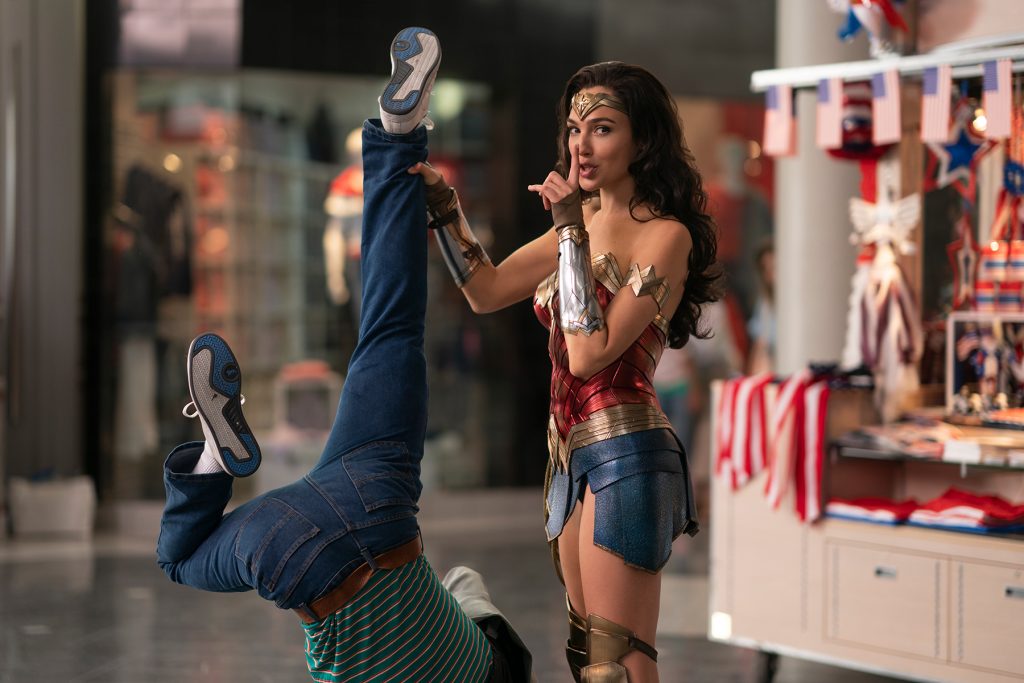
Help keep The Curb independent by joining our Patreon.
Oh boy, sure, let’s dive briefly into a movie thousands across the internet have already dissected into a million microscopic pieces, where just trying to watch it is almost ruined by near-constant focus on every aspect (positives and flaws) as if many learned nothing from the disastrous conversation post-Last Jedi.
Wonder Woman 1984 was not as fresh as the first movie. Rarely the sequel to a hit superhero film is. Marvel has had this problem with Iron Man and Thor. DC had this problem way back when with Superman II. But I’m okay with that. I’m okay with WW1984 being bigger, more ambitious, weirder in many ways, for taking risks and trying something different. I’m okay with where they took Diana’s character, showing that she still does have some serious flaws despite such a godly presence. She makes mistakes and pays for them again and again. I’m okay with Chris Pine returning as Steve Trevor. I’m okay with what the filmmakers do with the villains Maxwell Lord (Pedro Pascal) and Cheetah (Kristen Wiig). In general, I am okay with this movie.
I liked it.
It has some serious issues with consent and representation with MENA (Middle Eastern & North African) people that can’t be ignored, but for so many calling this out for the CGI, lack of action, new powers given to Wonder Woman, and the strange main story of a wishing rock, I had no problem with any of this. Both Wonder Woman movies are based on comics that are rather bizarre and fantastical, full of insane stories of gods and monsters, and Patty Jenkins boils this down to a story for this sequel that directly criticises the rampant excesses of the 1980s.
Is the script overstuffed? Yes. But enough of the development of new and returning characters worked for me. I loved Pedro Pascal’s performance as Lord, an obsessed and desperate charlatan with a painful truth to himself of always feeling left behind in life. I felt something for Diana and Steve’s new yet dangerous relationship, and I hope to see more of Wiig’s Cheetah in the inevitable third film. For just the absolutely beautiful Donner-inspired “invisible jet” sequence alone, Wonder Woman 1984 has enough merit as an ambitious continuation of this character and her story. Maybe it doesn’t work at times, but it tries to do something else. That’s all I can really ask from my superhero movies.
Director: Patty Jenkins
Cast: Gal Gadot, Kristen Wiig, Pedro Pascal
Writers: Patty Jenkins, Geoff Johns, Dave Callaham, (based on a story by Patty Jenkins, Geoff Johns, characters created by William Moulton Marston)
Nomadland
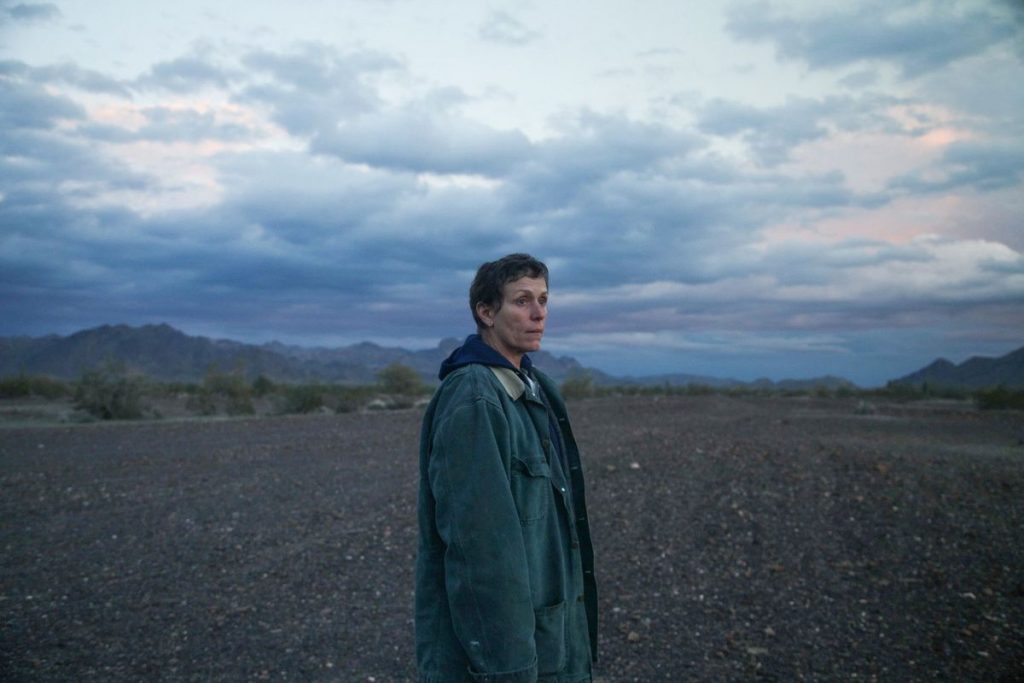
Help keep The Curb independent by joining our Patreon.
I’ve struggled to finish Chloé Zhao’s The Rider twice before. Her style as a director is so minimalist and realistic that I felt distanced by the story, as real as it may actually be. But after watching Nomadland, I am compelled more than ever to go back and watch anything she has directed.
Nomadland stars Frances McDormand as a woman caught up in the confusion and depression and fallout of the 2008 recession, forced to move out of her once prosperous town and onto the road in a van, travelling across the United States in search of work and purpose. Frances’ character is named Fern and the supporting David Strathairn’s character is named David. At first you think it’s a nice coincidence. Maybe Chloé Zhao wrote them for these actors. Until you read the end credits.
Every character beyond these two renowned actors is a real person playing themselves. The movie uses their real names and the story adapts around their lives as “Fern” interacts with them. It is this style of capturing what feels like the best-produced documentary dramatisation ever that gives Nomadland its softly-spoken and quietly-moving heart. I have never ever experienced a film that feels so real and so spiritual at the same time.
On paper, the narrative may sound a little boring, but from scene one you can’t help but be completely wrapped into the smallest moments as if they were tremendous plot twists of an epic film. Broken plates, lost friends, flat tyres, expired contracts, and running into old acquaintances are all so momentous in how Zhao captures them and how McDormand plays with them as an actor. Before long, you’re in tears at seeing a woman walk across wide swathes of vacant land, deserted by those who lost their entire lives without fault. Nomadland is a story of America as it still is. Desperate, inspirational, but realistically lost, scraped to the edges, and in need of help that might not ever come. It’s not a new story, but it must be told. This is one of the most beautiful films I think I’ve ever seen, Chloé Zhao is a magnificent filmmaker, and Frances McDormand is the only real contender for a third Oscar. You must see Nomadland when you can. You will not regret it.
Director: Chloé Zhao
Cast: Frances McDormand, Linda May, David Straithairn
Writer: Chloé Zhao, (based on the book by Jessica Bruder)
The Dry
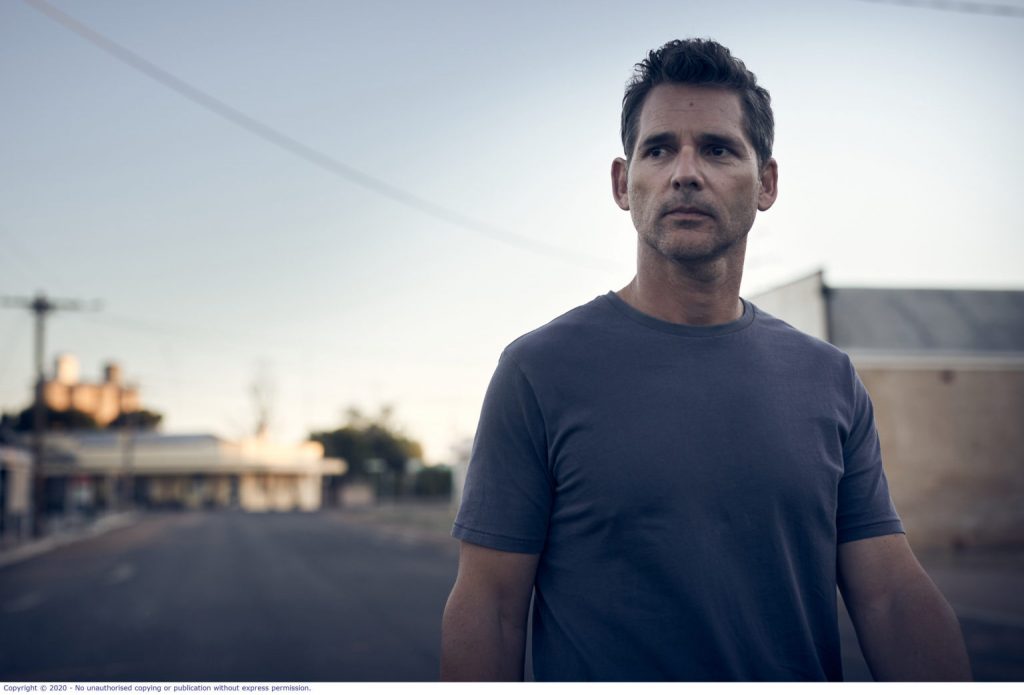
Help keep The Curb independent by joining our Patreon.
Directed by Robert Connolly (Three Dollars, Balibo, Paper Planes), The Dry stars Eric Bana as Federal Agent Aaron Falk who is called to return to his rural Victorian home town to investigate the apparent murder-suicide committed by his childhood friend Luke. During his investigation, Falk and those he once knew a long time ago start to relive and remember painful memories of a death 20 years ago that the town blamed Falk for. The two crimes, past and present, might be connected and Falk must face these terrible truths as well as the prejudices and wounded rage of this dried-up community.
The Dry plays out, in style and tone, like if David Fincher made an Australian thriller. Murder investigations, a broken male protagonist, uncovering a web of lies and deception, and a pretty damn bleak ending. On paper, this is the kind of film and story you can’t help but be interested in. Probably why the book was as successful as it was.
However, as interesting as the story seems, the execution is left sorely lacking. Connolly and co-writer Harry Cripps have taken Jane Harper’s novel and haven’t seen where it could use improvement or deeper development. You have two stories, one all in the present day of uncovering whether a murder-suicide actually took place, and the other both in the present and in flashbacks to a crime 20 years ago. As much as you hope the two connect and intertwine, they don’t. The Dry is so frustrating to watch. Doing both stories at the same leaves each one feeling unfinished and unsatisfying, to the point that you want to just pull your hands into the script and split it like Moses. It’s nice to see Eric Bana back leading a mainstream film, but if this was a tighter story, I would be singing The Dry’s praises and celebrating its current box office success, not lamenting what could have been.
Director: Robert Connolly
Cast: Eric Bana, Keir O’Donnell, Genevieve O’Reilly
Writers: Harry Cripps, Robert Connolly, (based on the novel by Jane Harper)
Pieces of a Woman
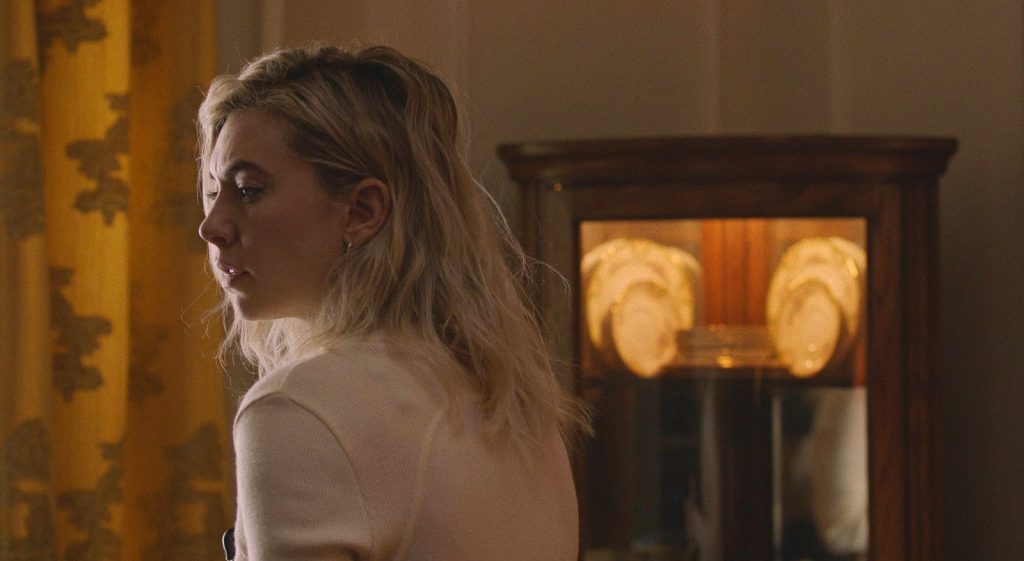
Help keep The Curb independent by joining our Patreon.
One of Netflix’s latest feature films is a rather obvious push for awards acclaim. They already have two excellent Oscar contenders for the 2020 awards season, whether it’s the overarching quality in Spike Lee’s Da 5 Bloods or Chadwick Boseman’s final live-action performance in Ma Rainey’s Black Bottom. But, with Pieces of a Woman is a definite push to get Vanessa Kirby and Ellen Burstyn at least nominations come the Academy Awards in March.
The movie starts with a terrific 30-minute one-take sequence, or the illusion of one, of Kirby’s Martha giving birth quickly at home, but things go horrifically wrong, with Martha losing her child. The rest of the two hour film is Martha and her volatile partner (Shia LaBeouf) dealing with the debilitating grief of such a loss, and trying to work with Martha’s caring but invasive family as they seek legal action against the emergency midwife (Molly Parker) they hold responsible for the tragedy.
Pieces of a Woman is a very, very sad movie. Just total sadness and depression for two straight hours until the very last scene that had me confused if it was real or not. While this can work for other films that also tackle loss, grief, and/or depression, how director Kornél Mundruczó and writer Kata Wéber explore it is rather heavy-handed and disappointingly one-note. Nothing much happens between the opening sequence and the climactic court battle beyond broken and terrible people destroying each other physically and emotionally.
This movie will work for some audiences out there, but I was left bored and impatient by such slow and paralysed character development. Vanessa Kirby gives a tremendous performance that deserves praise, and Ellen Burstyn as well is excellent as she always has been, but LaBeouf is miscast and even Benny Safdie’s brief performance is underwritten. The script barely comes together, the ending is rather abrupt, and the story of living with grief is lost in the midst. Pieces of a Woman is admirable but rather forgettable beyond that gripping opening that should have dictated the rest of the film’s direction.
Director: Kornél Mundruczó
Cast: Vanessa Kirby, Shia LaBeouf, Ellen Burstyn
Writer: Kata Wéber
One Night in Miami

Help keep The Curb independent by joining our Patreon.
And finally, let’s end on a great note with Regina King’s directorial debut One Night in Miami.
Starring Kinglsey Ben-Adir as Malcolm X, Eli Goree as Muhammad Ali, Aldis Hodge as Jim Brown, and Leslie Odom Jr. as Sam Cooke, One Night in Miami adapts Kemp Powers’ one-act play depicting a night in 1964 where these four Black icons and real-life friends met and the fictional conversation that might have happened between them. Each one questions and uncovers the truth of what each man truly believes in, and their pasts, presents and futures, highlighting different experiences for African-Americans in that time.
With just her feature debut, Regina King is immediately a fantastic director to keep an eye on. She has been an on-screen legend for over twenty years, winning an Oscar for Best Supporting Actress in Barry Jenkins If Beale Street Could Talk, and now she bursts onto the directing scene tall and proud, but never in your face about it. One Night in Miami moves with great efficiency, gracefully and expertly timed and edited, and looks just nice enough but never so much to distract. Her shots are all important and the performances she wrings out of each actor is nothing short of exemplary.
Each one of these four actors inhabit their titanic legends masterfully. Ben-Adir plays a different yet equally real Malcolm X to the one Denzel Washington defined in 1992, here made of an anxious and uneasy energy that brilliantly compares to Washington’s iconic performance. Eli Goree is just as overwhelmingly charismatic and secretly sensitive as Will Smith was playing the greatest boxer of all time in 2001’s Ali, a testament to this great young actor who knows what he’s doing. Aldis Hodge and Leslie Odom Jr. don’t have the kind of wealth of previous performances to build on with their characters, but still do their jobs well, Hodge giving a quiet grace to the screen and Odom Jr. recreating the kind of heavenly light that Sam Cooke shone upon the world with just one note of his unparalleled voice.
It may not be a sweeping emotional epic that calls out specific injustices against African-Americans, nor does it dwell on heavy-handed foreshadowing to the tragedies yet to come for Malcolm X and Sam Cooke. One Night in Miami just exists as an important, enlightening, well-realised, and rather brilliant adaptation of a play, something many greats struggle with.
Director: Regina King
Cast: Kingsley Ben-Adir, Eli Goree, Aldis Hodge, Leslie Odom Jr.
Writer: Kemp Powers, (based on his play)



